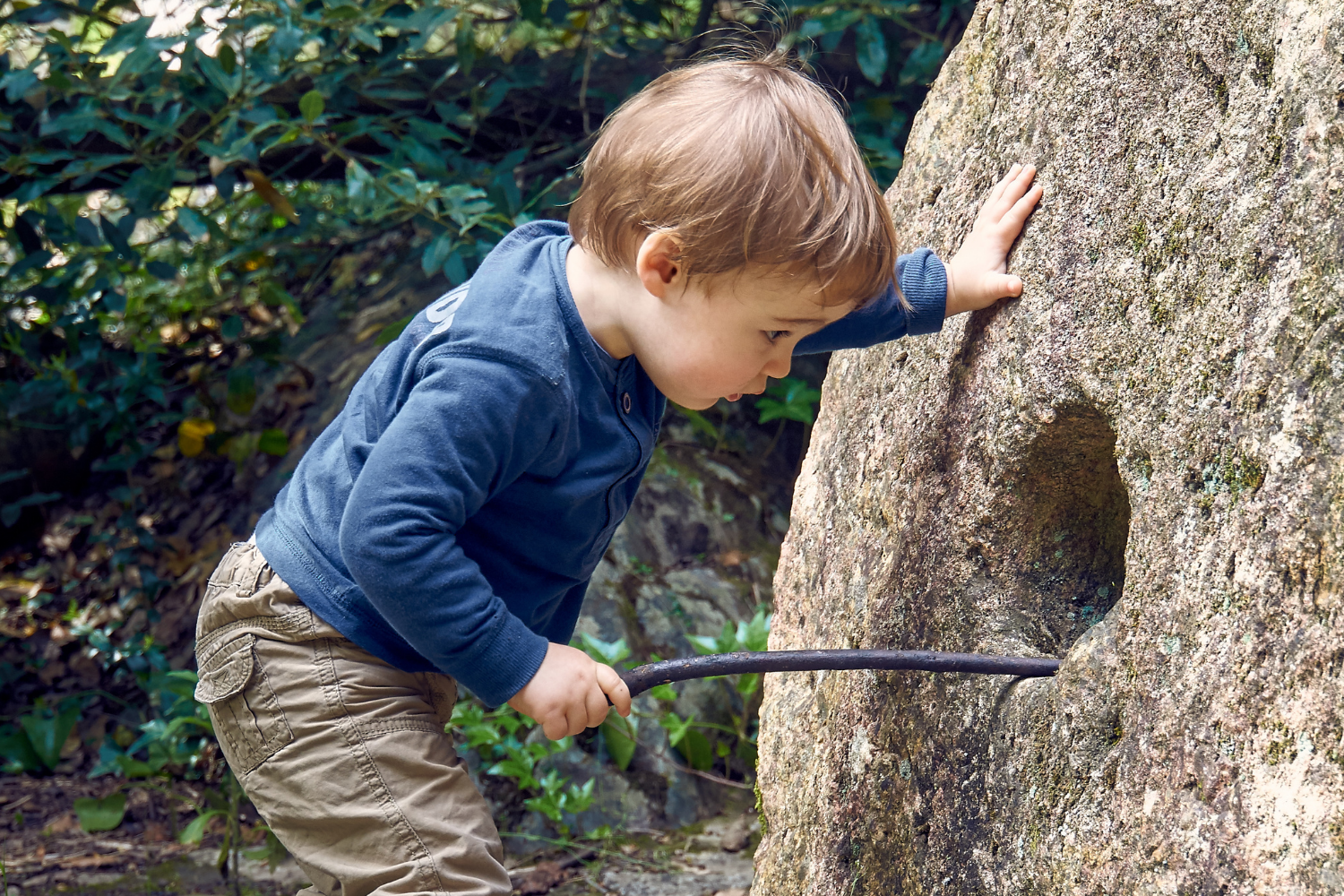A friend showed me a clip of her nine-month-old baby trying to imitate her mother's expressions. I looked into the baby's eyes as I watched the video and the intense alertness that I witnessed, the acute observation of each facial move in her mother's face, was fascinating.
The baby wanted to know how to make the same faces her mother was making, and she was trying to understand how to do this by conducting a scientific investigation.
It's the intense desire to know that all healthy children possess, yet what happens to their curiosity as they grow older? Why do so many children forsake that infinite sense of wonder that is so innate to each of us?
“No thief, however skillful, can rob one of knowledge, and that is why knowledge is the best and safest treasure to acquire.”
One of the reasons this happens today is because too many children start school at young ages, and by the time they reach kindergarten, first grade, if they are lucky, the light within them begins to dim.
Consider this: if your child’s desire to explore and understand the world around him is constantly thwarted by a teacher’s dictates, he will begin to give up his investigative work, and his sense of curiosity will eventually wilt.
For example, if a child has a small shovel in his hand, but every time he tries to shovel something a teacher tells him to stop, he will eventually stop picking the shovel up.
When a child cannot follow the lead of his curiosity, or is not in an environment where he can exercise his desire to know, as children who are in daycare and preschools from early ages are, they begin to put their curiosity down.
If you have a child whose curiosity is waning, or whose curiosity you want to stimulate, here are five things you can do:
If you have to put your child into an outside program, look for a daycare or preschool that is play-based and ideally held in the outdoors, such as a Forest School. Make sure they are operated by people who understand what children need at these tender ages. If you aren't sure what the philosophy for the school is, ask them. Please do not be shy about these matters; after all, this is your child, and you want to make sure he is under the best care.
Immediately remove all screens from your child's life both inside and outside the home. Under no circumstances should you hand him your cell phone to quiet him because you are busy. Screens are a cause of a dimming curiosity; not only that but they will thwart your child's brain development.
Do not entertain your child! Let him entertain himself. It is not that you don't ever play with your child, but only that you do not become his full-time playmate. Allow him to follow the dictates of his curiosity and figure things out for himself. Children are little scientists; let him conduct his own experiments.
Be curious yourself. Take your child into the outdoors and explore with him. Let him walk barefoot on fallen leaves and dip his feet into spring water to awaken his senses. Bring his attention to the songs of birds and the rustling of the trees as the wind blows through them. Collect a bug or two and read about them when you get home. Notice a particular bird sound (my favorite is the red-winged blackbird!) and look the bird up in a reference book or on the internet when you get home. Try to imitate the bird's song with your child. Ask him questions to stimulate a conversation and discover the answers together, such as how birds fly and what foods they eat.
Lastly, if you can, don't put your child into any school programs until he is at least ten years old. Until then, teach him yourself because so many learning problems take root during those early years. The first few grades of elementary school are easy to teach when you know what you are doing.
Remember that the desire to know is our natural state, but we have this yearning socialized out of us in various ways, the least not being school. Our innate desire to know, however, is still there within us.
“An investment in knowledge always pays the best interest.”
If your child's desire for knowledge has dimmed, trust that you can help him awaken it; because reaching his full potential in life begins with the desire to know.
Don’t miss our free download, 10 True Facts About Homeschooled Kids That Will Surprise You.
When you join the Smart Homeschooler Academy online course for parents, Liz will share her 6-step framework for homeschooling brighter, happier, engaged kids who can get into the top 20 colleges and excel in their personal and professional lives.
Teach your child to read before sending him to school! Learn more about Liz's unique course to raise a serious reader, How to Teach Your Child to Read and Raise a Child Who Loves to Read.
For parents of younger children, who are concerned that their children develop well physically, emotionally, neurologically (brain), and intellectually please begin with Liz’s original online course, Raise Your Child to Thrive in Life and Excel in Learning.
Elizabeth Y. Hanson is a homeschooling thought-leader and the founder of Smart Homeschooler.
As an Educator, Homeschool Emerita, Writer, and Love and Leadership Certified Parenting Coach, she has 22+ years of experience working in education.
Developing a comprehensive understanding of how to raise and educate a child, based on tradition and modern research, Liz devotes her time to helping parents to get it right.
Liz is available for one-on-one consultations as needed.
"I know Elizabeth Y. Hanson as a remarkably intelligent, highly sensitive woman with a moral nature and deep insight into differences between schooling and education. Elizabeth's mastery of current educational difficulties is a testimony to her comprehensive understanding of the competing worlds of schooling and education. She has a good heart and a good head. What more can I say?”
—John Taylor Gatto Distinguished educator, public speaker, and best-selling author of Dumbing Us Down: The Hidden Curriculum of Compulsory Schooling































































